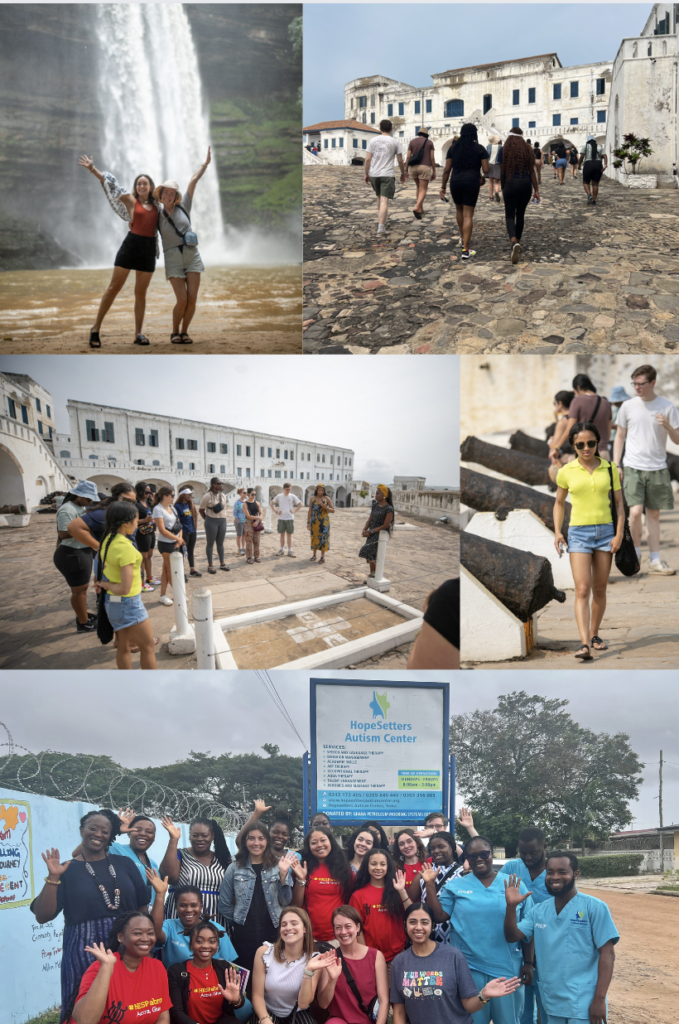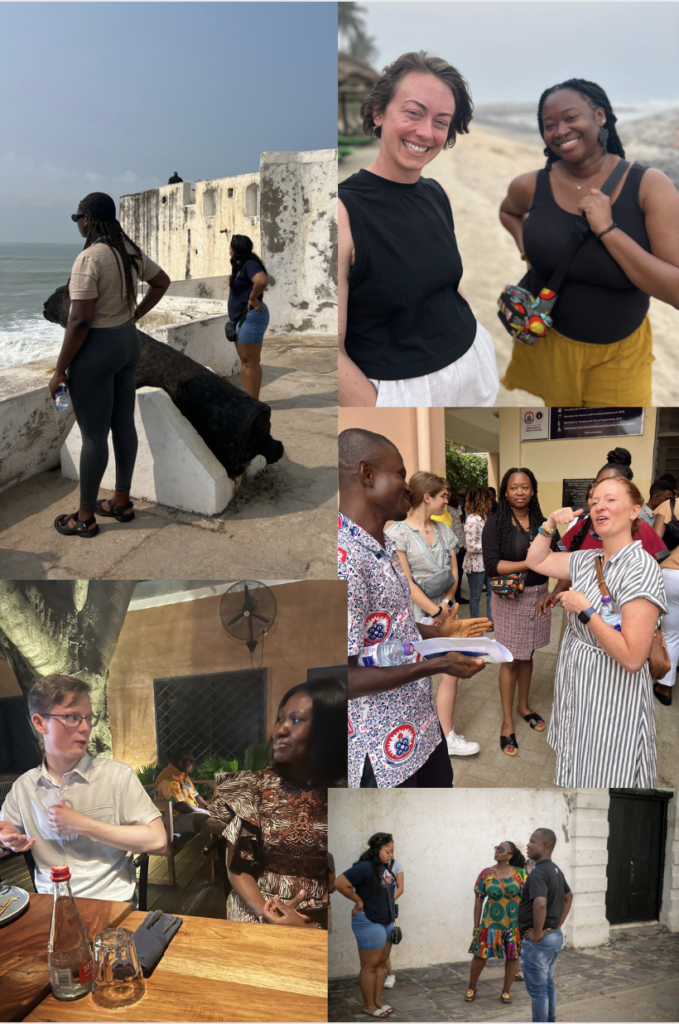Creating an Ethical Study Abroad Program in Ghana: An Interview with Eliza Thompson
Creating an ethical study abroad program in Ghana requires more than just good intentions or a love of travel. I had the pleasure of interviewing Eliza Akua Thompson, a passionate Speech-Language Pathologist (SLP) and Assistant Clinical Professor, about her experience with developing a study abroad program for her department at the University of Maryland, College Park. Her goal for the program is to expose students to the skills necessary to become a culturally rich speech therapist while participating in international collaborations in speech-language pathology in Ghana. From the unique challenges faced by Speech and Language Therapists (SLTs) in the country to the intricacies of developing a sustainable study abroad program, Eliza shares her experiences and valuable lessons learned. You can view our full interview here 👈.

Speech and Language Therapy in Ghana
When creating a study abroad program in any country, you have to first seek to understand the culture. This takes a lot of work behind the scenes. Eliza says the best thing one can do is to make connections in country. Reach out to professionals, you will be surprised and humbled by just how willing most people are to work with you and help. Connecting with locals gives you the chance to ask what is already established and what is needed. Without that information, travelers can actually do more harm than good. Here are some cultural points that are specific to Ghana.
The Profession of SLP in Ghana: In Ghana, Speech and Language Therapists are known as SLTs. The profession is still in its early stages, with the first cohort graduating as recently as 2016. Despite a growing population of 32 million, only 50 SLTs are currently serving the country. Educational requirements for SLTs are similar to international standards.
Barriers to Services: SLTs in Ghana face numerous challenges, including religious beliefs, stigma surrounding disabilities, and a preference for seeking help from pastors before turning to professionals. Transportation, lack of infrastructure for teletherapy, and very high caseloads further compound the difficulties. Breaking down these barriers involves not only addressing the logistical issues but also challenging cultural norms and providing education about disabilities.
Attitudes Towards Disabilities: The Ghanaian culture exhibits difficulties in discussing disabilities, aging, death, and a belief in curses or the evil eye. Addressing non-physical disabilities, such as autism, poses additional challenges due to their invisible nature. Understanding and navigating these cultural nuances is crucial for effective communication with clients, caregivers, and other professionals.
Linguistic Diversity: With 90 different languages spoken in Ghana, linguistic diversity can be a factor in providing therapy. While therapy is typically conducted in English, the national language, limited English proficiency can be a barrier for some families.
Eliza emphasizes the importance of working within existing structures and systems, contacting local professionals, and being mindful of linguistic differences. For more details about SLP/SLT in Ghana, check out my blog from my interview with Josephine Ohenewa Bampoe on March 7, 2023. You can view the full interview here 👈.

Creating an Ethical Study Abroad Program
Sustainable and Ethical Study Abroad Programs: Eliza underscores the need for ethical considerations when developing study abroad programs. Avoiding voluntourism and working with local systems already in place are crucial for sustainability. To prepare for the trip, she has her students read the book “It’s Not About Me” by Sally Hetherington and follow up with a class discussion to help students understand the potential harm of voluntourism and the importance of collaboration with local communities.
In-Country Clinical Experiences: Eliza’s students engaged in diverse clinical experiences during their 10-day program in Ghana. Partnering with the University of Ghana, Mission Clinic, Teaching Hospital, School for the Blind, and Hilltop Global, they observed therapy sessions and interacted with local professionals. Goals included cultural competence, sensitivity, and better understanding local needs.
Cultural Competence and Sensitivity: Preparation for the trip involved readings and lectures that emphasized the importance of cultural competence. Eliza’s university, the University of Maryland-College Park, has dedicated efforts to cultural and linguistic diversity, incorporating study abroad as a vital component. Building connections ahead of time, fundraising, and providing access opportunities were essential elements in preparing students.
Designing Sustainable Study Abroad Programs: To ensure long-term sustainability and positive impacts, study abroad programs must consider resources and contacts within the host country. Connecting with local organizations, such as the Speech Therapy & Audiology Association of Ghana (STAG), fosters collaboration and knowledge exchange. Eliza is also working on a mentorship programs to link SLTs in Ghana with Western SLPs.
In Conclusion
Creating an ethical study abroad program in Ghana requires a deep understanding of the local context, addressing barriers to services, and fostering sustainable partnerships. Eliza Thompson’s experience serves as a valuable guide for educators and professionals looking to create impactful and culturally sensitive study abroad opportunities in the field of Speech-Language Pathology.
More about Eliza
Eliza Akua Thompson is an Assistant Clinical Professor in the Department of Hearing and Speech Sciences at the University of Maryland, College Park. She has had a long standing interest in the processes of communication with a focus on child language development and literacy intervention. As a clinician and clinical supervisor, Eliza has worked in a variety of settings including public schools, private practice and hospitals. She has also served as a clinical supervisor and therapist overseas, specifically, Ghana, Haiti and Kenya.
At the University of Maryland, Eliza teaches Clinical Practicum, Principles and Methods in Speech-language Pathology, Speech and Language Development in Children and Diagnostic Procedures in Speech Language Pathology. Her specific clinical interests include bilingual language development, communication in cultural and linguistically populations, and language/literacy intervention.
Eliza is also founder and director of the department’s premiere study abroad program, HESP-GPS. Global Perspective in Service-Learning (HESP-GPS) is an experiential service learning program that offers clinical training for HESP students who seek a greater understanding of communication sciences and disorders in an international context.For more information please visit her faculty page. To support students with their fundraiser, go here.
